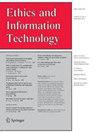Violent video games: content, attitudes, and norms
IF 3.4
2区 哲学
Q1 ETHICS
引用次数: 0
Abstract
Abstract Violent video games (VVGs) are a source of serious and continuing controversy. They are not unique in this respect, though. Other entertainment products have been criticized on moral grounds, from pornography to heavy metal, horror films, and Harry Potter books. Some of these controversies have fizzled out over time and have come to be viewed as cases of moral panic. Others, including moral objections to VVGs, have persisted. The aim of this paper is to determine which, if any, of the concerns raised about VVGs are legitimate. We argue that common moral objections to VVGs are unsuccessful, but that a plausible critique can be developed that captures the insights of these objections while avoiding their pitfalls. Our view suggests that the moral badness of a game depends on how well its internal logic expresses or encourages the players’ objectionable attitudes. This allows us to recognize that some games are morally worse than others—and that it can be morally wrong to design and play some VVGs—but that the moral badness of these games is not necessarily dependent on how violent they are.暴力电子游戏:内容、态度和规范
暴力电子游戏(vvg)是一个严重且持续争议的来源。不过,在这方面,它们并非独一无二。其他娱乐产品也因道德原因受到批评,从色情到重金属,从恐怖电影到哈利波特。随着时间的推移,这些争议中的一些已经失败,并被视为道德恐慌的案例。其他的,包括对vvg的道德反对,仍然存在。本文的目的是确定,如果有的话,对vvg提出的关注是合理的。我们认为,对vvg的普遍道德反对是不成功的,但我们可以提出一种合理的批评,既能抓住这些反对意见的深刻见解,又能避免它们的陷阱。我们的观点认为,游戏的道德问题取决于其内部逻辑表达或鼓励玩家反感态度的程度。这让我们认识到,有些游戏在道德上比其他游戏更糟糕——设计和玩一些vvg在道德上可能是错误的——但这些游戏的道德不良并不一定取决于它们有多暴力。
本文章由计算机程序翻译,如有差异,请以英文原文为准。
求助全文
约1分钟内获得全文
求助全文
来源期刊

Ethics and Information Technology
Multiple-
CiteScore
8.20
自引率
5.60%
发文量
46
期刊介绍:
Ethics and Information Technology is a peer-reviewed journal dedicated to advancing the dialogue between moral philosophy and the field of information and communication technology (ICT). The journal aims to foster and promote reflection and analysis which is intended to make a constructive contribution to answering the ethical, social and political questions associated with the adoption, use, and development of ICT. Within the scope of the journal are also conceptual analysis and discussion of ethical ICT issues which arise in the context of technology assessment, cultural studies, public policy analysis and public administration, cognitive science, social and anthropological studies in technology, mass-communication, and legal studies.
 求助内容:
求助内容: 应助结果提醒方式:
应助结果提醒方式:


